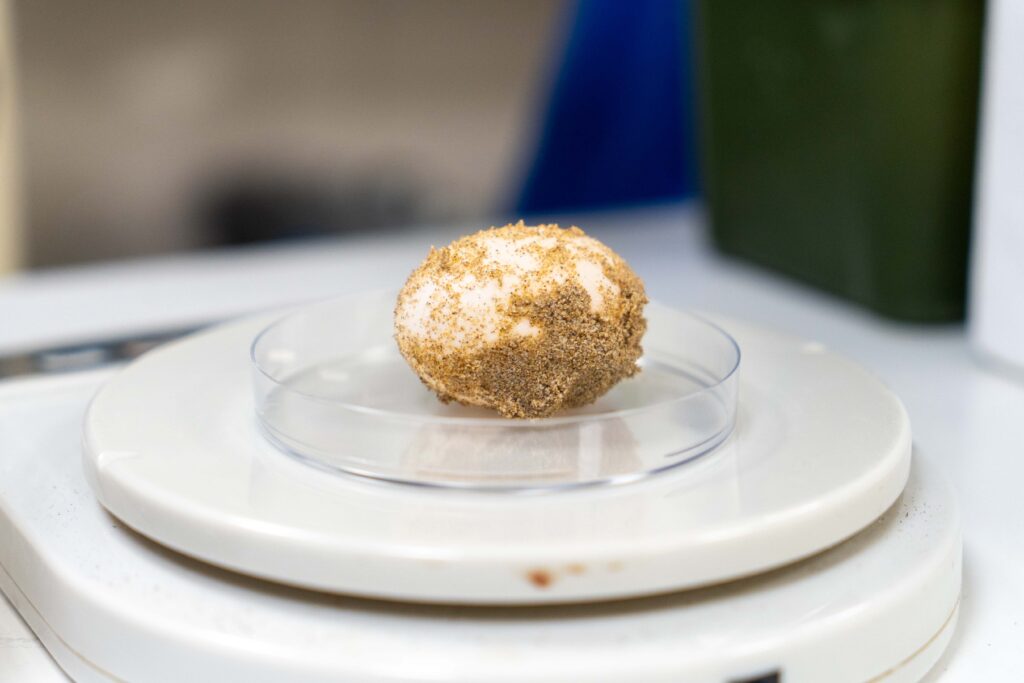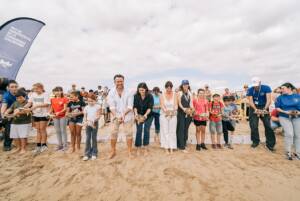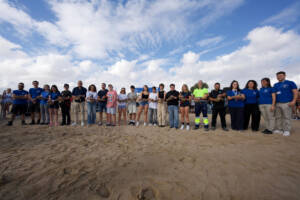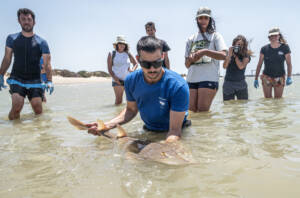Back to all news
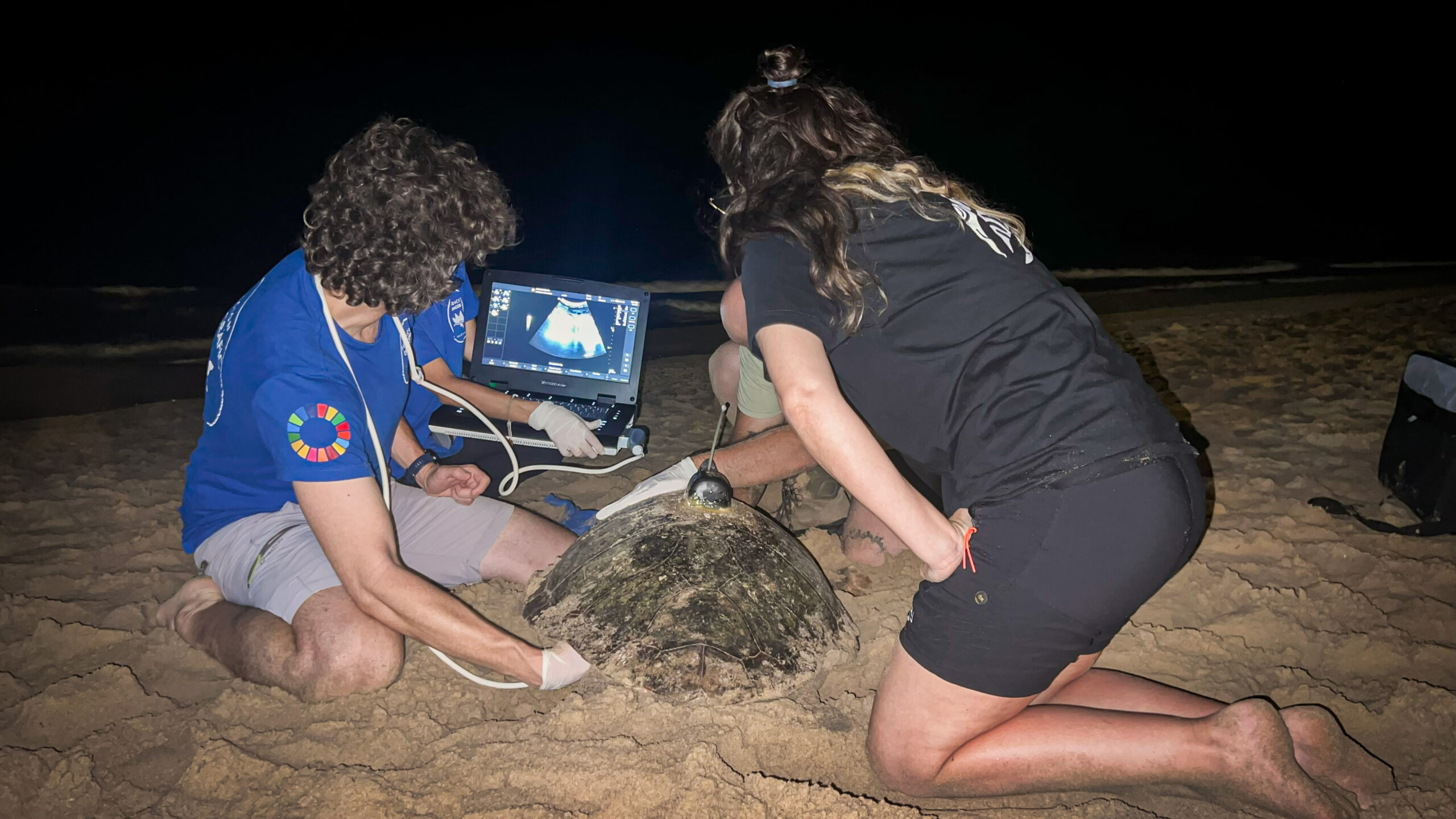
Elche Beach Records the Third Turtle Nest in the Valencian Community with 79 Eggs
4 de July de 2025

- Nine eggs have been moved to the Oceanogràfic for controlled incubation, and the rest will remain guarded on a protected beach in the Alicante municipality.
Elche, July 4, 2025-.
The loggerhead sea turtle (Caretta caretta) nesting season continues in the Valencian Community with the discovery of the third nest of the season, this time on Los Arenales del Sol beach in Elche, during the early hours of the morning.
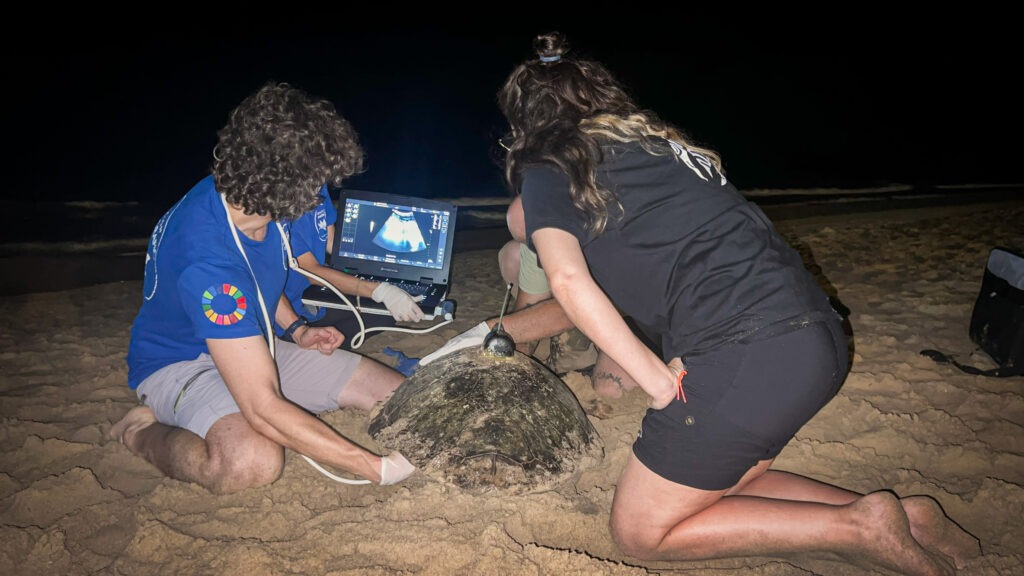
In total, the turtle has laid 79 eggs, of which 9 have been transferred to the incubators of the Oceanogràfic in Valencia, while the rest will remain protected on one of the beaches of the municipality, under specialized surveillance.
The notice occurred shortly after midnight, when three young people who were on the beach observed the presence of a turtle coming out of the sea and immediately alerted 112.
Thanks to this citizen reaction, it was possible to activate the action protocol of the Valencian Community’s Stranding Network, which mobilized the technical team to guarantee the correct intervention.
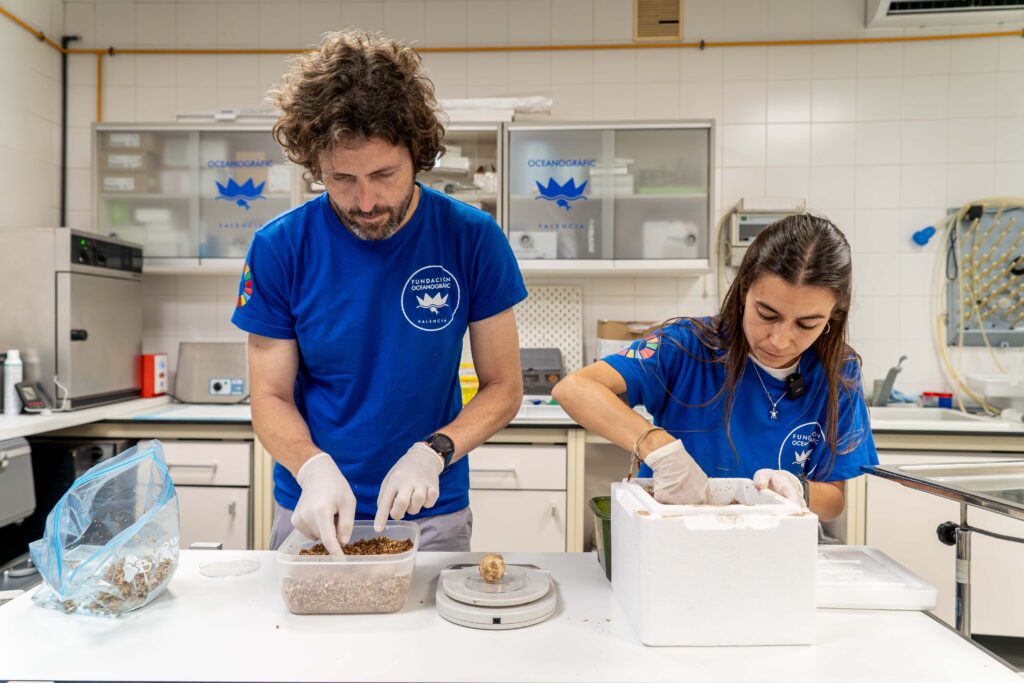
Veterinarians from the Oceanogràfic Foundation, researchers from the University of Valencia and the Polytechnic University of Valencia, who attached a satellite transmitter to the turtle to track its movements, have traveled to the area. Personnel from the Xaloc volunteer group, which collaborates in custody and awareness-raising tasks, also participated.
Satellite tracking will allow researchers to know the turtle’s movements in real time and detect if it makes new nesting attempts on the coast this season.
This new nest confirms the frequency of Caretta caretta layings on the Valencian coast, a phenomenon that experts relate to the increase in sea temperatures and the adaptation of the species to new breeding areas. The province of Alicante, and in particular the beaches of Elche and Dénia, are consolidating as key areas for the reproduction of this species.
The Oceanogràfic Foundation emphasizes the importance of citizen collaboration in these cases, and reminds that, in the event of any sighting of a sea turtle, 112 should be contacted, without intervening or approaching the animal to ensure the activation of the protocol and protect both the specimen and its offspring.

